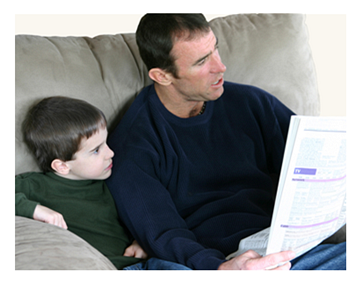I’ve come to the conclusion that the term “factoid” is a useful one in contemporary life, albeit misunderstood. It suggests a fact, but isn’t.
 Or perhaps it is – at least – sufficiently factual to be tossed into the fray in advertising, in publicity, or in a claim about a product, a service, a political record or position. At least, until someone calls us on it and presents evidence to the contrary.
Or perhaps it is – at least – sufficiently factual to be tossed into the fray in advertising, in publicity, or in a claim about a product, a service, a political record or position. At least, until someone calls us on it and presents evidence to the contrary.
But what the hell. Who has time to fact check the fact-checkers, or anything else? If the information as presented is palpable, or at least comprehensible, then isn’t it good enough?
And isn’t good enough, well… good enough?
When I hear the word “factoid” I think of information intended to amuse or entertain, to be believed to a point, but not to be relied on with the same certainty as a fact. When it comes to facts, I assume serious sources of authority and evidence.
You know. Proofs and theorems, photos before Photoshop, unfiltered documents, eye witnesses à la Perry Mason.
Definition of Factoid vs. Fact
We live in the era of factoids and anecdotes, though we don’t clearly distinguish them from facts, much less reliable and significant data. We’re busy. We’re tired. We accept an essence of truth if it “feels right.” And let’s face it, by the time we’re adults we have opinions that become truths to us – so they must be valid and universal, right?
According to The Free Dictionary, a fact is defined as:
Knowledge or information based on real occurrences;
Something demonstrated to exist or known to have existed; a real occurrence or event
The Free Dictionary defines factoid as:
A piece of unverified or inaccurate information that is presented in the press as factual, often as part of a publicity effort, and that is then accepted as true because of frequent repetition
The Free Dictionary goes on to note that the suffix -oid means “resembling or having the appearance of.” So a factoid resembles a fact, and foolishly, we’ve come to take the factoid as fact.
Did you process that definition? Its most noteworthy elements?
Unverified. Inaccurate. Accepted as true because of frequent repetition.
Fact Checking, Truth Telling, Journalistic Purpose
I admit that I’m a stickler for true expertise – for authority, credibility, authenticity. And dancing around that subject in light of political reporting, I will mention two articles I read with interest yesterday. The first is by the public editor at the New York Times, Margaret Sullivan, in an opinion piece titled “He Said, She Said, and the Truth.”
Ms. Sullivan’s column addresses an increasingly serious and complex dilemma in journalism – the need to present facts (and “truths”) to readers, to present all sides of an issue with as little bias as possible, and the pressure of tight deadlines (pushed by social media) which renders fact checking more difficult.
Ms. Sullivan raises the issue of the need to present factual truth, not simply what some have come to define as balanced journalism, reporting what two (conflicting) sides of an argument may say as one or the other (or both) presents half-truths or a partial picture. That then results in a skewed (or at least confused) view of, dare I say it… the facts.
She writes:
Journalists need to make every effort to get beyond the spin and help readers know what to believe, to help them make their way through complicated and contentious subjects.
I quite agree, which leads me to the second article of interest in yesterday’s New York Times, by Jeremy W. Peters, “In Dueling Ads, Candidates Seek to Politicize Issues of China and Manufacturing.”
Netting things out – the article highlights statements made by ads from the Romney Campaign which are misleading at best. Likewise, counter claims from the Obama Camp offer equally pithy sound bites which, in this example, are closer to “facts” than opposition statements. Still, neither side paints a full enough picture for we the people to understand what is really going on.
Then again, we’re living in land of “Journalism Lite” and apparently, “Truth Lite” as well. No, not “light” as in the opposite of darkness.
And who exactly is to blame for that?
Information Supply & Demand (We Get What We Deserve?)
 Here is the problem as I see it.
Here is the problem as I see it.
We don’t read (we skim). We don’t listen (we multitask). We don’t ask questions (we assume). And this is a sorry state of affairs in an information era that offers more options than we’ve ever had before – news via cell phone, laptop, tablet, or the traditional printed page.
And of course, the overwhelming number of choices is part of the problem. But it should not provide an excuse for our willingness to swallow the sound bite over the thorough analysis, or to ignore the importance of understanding complicated issues.
This is true in our personal and professional lives, and all too true – in my observation – when it comes to assessing political posturing whether to do with moving jobs overseas and the factors that are to “blame,” or how to stimulate the recessionary economy.
And on a side note, I will recommend this illuminating article on the historical success of tax cuts in the past two decades, “Do Tax Cuts Lead to Economic Growth?” – with the hope that you will make the time to read and consider.
My point?
As long as the factoid reigns, as long as our information consumption demands it, as long as we perpetuate the one-dimensional casting of hero versus villain or “right” versus “wrong” – that’s all we’ll get, and that’s all, she wrote.
Information Intelligence?
Can’t we determine to pick up a newspaper (or digital device) and read a thorough handling of an issue? Even two or three hours a week – instead of playing cards on Facebook or tweeting the latest annoyance over our kids or gossipy item about a celebrity? If you still insist you can’t, I will reply, Yes you can.
Yes, we can.
 And wouldn’t this be an excellent example for our children? Engaging with a respected periodical or two that is willing to go beyond 500 words or 750, and one which is known to check its facts? Might we not consider it wholly unacceptable that presidential and vice presidential candidates toss out statements that we’re too lazy to think through and check though common sense demands we do so?
And wouldn’t this be an excellent example for our children? Engaging with a respected periodical or two that is willing to go beyond 500 words or 750, and one which is known to check its facts? Might we not consider it wholly unacceptable that presidential and vice presidential candidates toss out statements that we’re too lazy to think through and check though common sense demands we do so?
I have no use for the hollow claim, the 15-second spot, the catchy phrase or comeback. I have no more patience for our impatience and lazy acceptance of whatever we are fed by the press, or what passes for the press. I am rebelling against the factoid and its slippery distortions.
I am willing to accept the complexity of the issues we all face in our lives, knowing there are no easy answers and no simple truths.
Demanding facts over factoids – and the time as well as effort required to process them – is an investment in my future, the future of my children, the future of my community, the future of my country and our world.
A dramatic statement? Maybe. But is it any less a fact?
You May Also Enjoy
Hear! Hear!
I heartily agree with everything you’ve written here (even while I hang my head in shame that I am sometimes guilty of not fact-checking – or is that factoid-checking? – the things I hear and read if they tend to reinforce what I already believe).
Over the summer, shortly after the furor surrounding Jonah Lehrer’s malfeasance at The New Yorker, I heard a piece on NPR about the burden of proof (burden of truth?) on journalists and how the time pressures of the Internet Age have contributed to some writers’ slippery treatment of the facts. One of the guests was a woman who writes regularly for Slate, but recently published a memoir. She did a terrific job explicating the different standards of the different genres and reminding listeners that, while in memoir there is room for shaping certain details as long as they don’t detract from the truth of your experience, in journalism, it’s just the facts…ma’am.
There was another recent article, on Psypost, about our physiological reactions to those whose beliefs we share and those whose beliefs we dismiss (and thus, ignore). (Thus, we pay closer attention to those opinions that reinforce what we already think?)
Ah, the various genres. Excellent point, Kirsten. But as you say, the audience expectations are indeed different.
We live in an age of sound bites – if it’s catchy, it will probably get remembered. We live in an age of factoids zooming around the internet, being forwarded by person to person to person, with far too many of those persons believing it because “it was on the internet – the internet can’t lie” – right? Yeah huh. I must confess to often being a scanner of information, but I also pride myself in not believing everything I see or am told and in checking as best I can to verify the truth. Which is why I read two news magazines a week and do not watch TV news. But still, I am not as informed as I should be.
I feel as though I don’t read enough, too, Carol. I’m trying to improve on that score. It’s time consuming, which – with all the other demands on our time – is part of the challenge, I know.
This piece is so delicious I had to mention it here:
Diary of a Mad Fact Checker.
Part of the fact checking that has been lost is that the education level of the populace is insufficient for our complex world. One has to be a learned Victorian-era intellectual that has time to study economics, religion, science, mathematics, warfare, logic, philosophy and biology from first principles in order to fully understand modern policy issues. The best we can do is focus on the really important issues (to us) and learn what we can to form reasoned opinions.
Some factoids also emerge from faulty logic, causation is often confused with association, two very different results from statistics and a subtlety that can be lost in reporting (a university stats researcher would be careful to say “effect A is associated with food B” but a news report will often present “food B can cause effect A”). These are the sort of news items where no one has the time to read the original papers; all we can hope for is that the truth will emerge over time with more studies and improved reporting.
I hear you Batticus. These are important distinctions, and we’ve lost meaning in glossing over them. And I know, this is just one example.
Hi, I skimmed your article while doing some multitasking, but I did notice the part where you say, “Who has time to fact check the fact-checkers, or anything else? If the information as presented is palpable, or at least comprehensible, then isn’t it good enough? And isn’t good enough, well… good enough?”
It’s simply not good enough and people know it. The problem is that the fact checkers are not actually fact checking at all. In many cases their fact checks are just as biased. So who has time to fact check? Well there are plenty of people out there who could do it, if only they had an unbiased forum in which to participate. That’s why last week I launched WeCheck, the people’s fact check. WeCheck uses Wikipedia-like editing to allow multiple collaborators to fact check the fact checkers. Even if the end result is not what you like, then at least all sides of the issue can be explored. It’s early days right now and there’s a lot of work to be done, but I invite you to have a look at. Let me know what you think.
Hello Mark. And good luck with your venture. A few points.
My statement that you excerpted was facetious. But I imagine you know that.
Secondly, we have “citizen journalists,” citizen contributors to encyclopedic content (Wiki, for example), and now you’re offering citizen fact-checkers?
As with anything, the quality will vary because the skill, experience, commitment, integrity, and agendas of the contributors will vary – and this is the dilemma with the many forms of “media” we have now. It’s a double-edge sword – delivering news (and information) fast, but without the checks and balances that once-upon-a-time were part of the journalistic profession.
And that’s why I insist that we, the consumers of the information, must take it with a grain of salt, must probe, and possibly insist on sources, references, and the sort of details (and time to process them) that was once more common.
Your thoughts?
I agree with you that, as consumers of information, we all have to be vigilant. In addition to fact checking, one of the things I am trying to do at WeCheck is educate people by allowing contributors to add tags such as [[STRAW MAN]], [[CONJECTURE]], [[RACE CARD]], [[MORAL EQUIVALENCE]], [[AD HOMINEM]] etc that highlight different techniques politicians and commentators use. Many people simply don’t know how they are being manipulated and perhaps with some education we can all get away from the rhetoric and closer to the facts.
Education is a process, and to the point that Batticus made, not one that we (Americans) seem to be accustomed to when it comes to politics or any number of complex fields in which we are – as you say – susceptible to being manipulated. The issues are complex, the information (and noise), constant (and conflicting).
Education can happen in many ways, formally and informally – and the younger it starts the better – including around the dinner table (if possible), as it does (or at least once did) in European households. In the meantime, any education that can be accomplished in assisting with our processing and evaluating the accuracy of information – the better.
Not to mention, distinguishing the factoids from actual facts.
(I imagine you are aware of the news on the Romney tapes, being reported in various ways from various sources. Interesting, even in that, how the candidate refers to himself as having “earned” everything he has, though seems to dismiss the following “facts” (per Huff Post), and I quote: “Romney’s parents did pay for his boarding school, his college, his graduate school and his first home.”
Then there’s the 47% figure quoted – Americans who don’t pay taxes, according to the candidate, without specifying that’s FIT, and includes those exempt from FIT because of low income, retirees, ignores state & local taxes, etc. )
Sadly, we’ve come to expect this in politics, though we’ve been treated to a bit more than usual this past year, in my estimation.
Our “glossing” over of facts or selective inclusion / exclusion for our own purposes has become epidemic. Fine I suppose, in some instances. Not fine for what should be trusted sources… Then again, theoretically, those who govern ought to be trusted sources. But, that’s likely a factoid…
I love the fact checkers. It has become big business and I always go to ones that are totally neutral and just looking for the statements made are true or not.
I know one fact for sure….there is NO WAY anyone can skim your posts and then comment intelligently! You have a wonderful way of drilling down and making people really think. And that just can’t be done successfully while skimming and multi-tasking at the same time. 😉
But facts are expensive!
Factoids are cheap!
Good point!
Dear Mr. Mark Devlin,
I skimmed your comments here while doing some multitasking, so I might not have gotten the gist of your advertisement, but I did notice the part where you said how important it was to be vigilant. I just wondered if you check facts the way you read blogs. I think you’d especially profit from The Diary of a Mad Fact Checker article which I mentioned above. Hope you have time to skim it. Got to go.